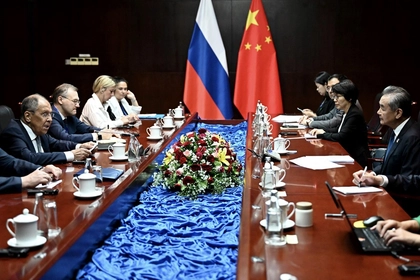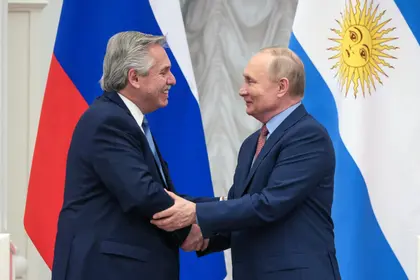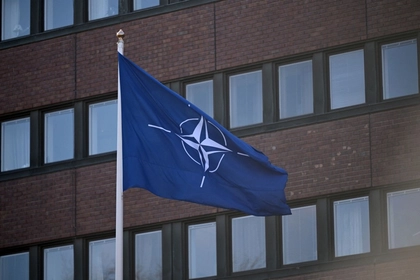Since he assumed the office of President of Argentina on Dec. 10, 2019, Alberto Fernández has sought to bring his country into the BRICS club – the economic-commercial bloc made up of Brazil, Russia, India, China and South Africa.
According to data from the World Bank and the United Nations Development Program, these countries in 2021 had a total population of 3.216 billion people, the equivalent of 43 percent of the world population. Their annual GDP based on purchasing power parity was $42.2 trillion, or $79,987 per capita. Numbers that make them a more than tempting market for any government.
JOIN US ON TELEGRAM
Follow our coverage of the war on the @Kyivpost_official.
That is why Cristina Fernández de Kirchner and Alberto Fernández, in their respective presidencies, tried by all means to ingratiate themselves with the members of the BRICS.
In line with this strategy, the Argentine president invited Xi Jinping to the summit of the Community of Latin American and Caribbean States (CELAC) held in Buenos Aires this past January.
It is worth noting that the Chinese government has a space station in the Argentine province of Neuquén, which is administered by the China Satellite Launch and Tracking Control General (CLTC).
Due to this strategy, Ukrainian President Volodymyr Zelensky was unable to participate in the Southern Common Market (Mercosur) summit held in July 2022 in Asunción, Paraguay. His petition, presented before the presidents of Argentina, Brazil, Paraguay and Uruguay, was rejected.

Russia, China FMs Meet as ASEAN Talks Get Underway in Laos
Argentina’s entry into the BRICS would complete the task begun during the Cristina Fernández de Kirchner administration (2007-2015) and resumed by Alberto Fernández, who has the former president as his current vice president.
In February 2022, days before the Russian invasion of Ukraine, the Argentine president expressed his interest in joining the trade bloc to Vladimir Putin and Xi Jinping at the bilateral meetings he had with both leaders.
In the Kremlin, President Fernández told Putin: “We have to see how Argentina can become a gateway for Russia in Latin America.”
After that meeting with Putin, the Argentine president traveled to Beijing where he participated in the opening of the Winter Olympic Games, laid a wreath at Mao Zedong’s mausoleum and met with Xi Jinping.
In 2010, Cristina Fernández de Kirchner, who was the president of Argentina, received the then Russian president Dimitri Medvedev. While he emphatically stated: “Russia has returned to Latin America,” she replied: “This is the first time that a Russian president comes to Argentina, within the framework of the 125 years of diplomatic relations between both countries.”
Four years later and with Putin once again in the presidency, Russia annexed Ukraine’s Crimean peninsula including the city of Sevastopol. Previously, the United Nations Security Council (UNSC) had dealt with a resolution rejecting the holding of a referendum in the Autonomous Republic of Crimea. The resolution, which was not approved due to Moscow’s refusal, had the favorable vote of 13 countries, including Argentina.
But later, the Argentine representative, María Cristina Perceval, was disavowed by Fernández de Kirchner, who asked the powers, mainly the U.S. and U.K., for “coherence” in terms of territorial integrity. She questioned the position of the countries that rejected the referendum in Crimea to annex Russia yet endorsed the one in the Malvinas Islands, an Argentine territory occupied by the British since 1833.
The attitude of the Argentine president motivated Putin to call her and thank her for the position that the Argentine government had taken at international forums on the Crimean issue.
It must be remembered that the Kremlin always gave its support to Argentina regarding the Malvinas cause. During the existence of the USSR it voted in the affirmative for all the resolutions approved in the UN General Assembly (UNGA). And from 1989 when the Malvinas issue was discussed in the Special Committee on Decolonization, Russia always contributed to the annual approval of the resolution recognizing the existence of a sovereignty conflict and urging the parties to negotiate.
Both Argentina’s interest in joining the BRICS and the support of the Kremlin in the Malvinas cause has generated the reciprocity of Fernández de Kirchner first and Fernández later.
On March 27, 2014, the UNGA adopted resolution 68/262 on the territorial integrity of Ukraine. Argentina was one of the countries that abstained, and by doing so it was indirectly aligned with Putin’s interests.
That same year, in an interview from April 16, the Russian ambassador in Buenos Aires, Viktor Koronelli, stated: “Argentina is not only a friendly country, but it is also a strategic partner in Latin America, and we are very grateful to them for the support he gave us in the Crimea case.”
Then, in mid-July, Putin toured Latin America and on his third stop he visited Argentina, where he met with Fernández de Kirchner. In statements, the Russian president said: “Our relations with Argentina will have the character of a strategic association.” He noted that the country was “Russia’s main strategic partner in Latin America at the UN and the G20,” adding that “Argentina is one of Russia’s main economic and trade partners in Latin America.”
This was not the first time that both leaders met in person. In September 2013, on the occasion of the G20 summit, they met in Saint Petersburg. They also had a telephone conversation in March 2014 and a video conference in October of the same year.
Throughout 2015, Fernández de Kirchner and Putin spoke twice. Once in April during the visit of the Argentine president to Russia and the second through a videoconference.
In these years, from 2013 to the present, Argentine diplomacy established its position, highlighting the need to respect the primacy of the principle of territorial integrity, sovereignty and political independence of all states.
However, Fernández de Kirchner first and Fernández later clearly veered off in a direction linked more to economics than respect for international law and human rights – notwithstanding Argentina’s experience with dictatorship.
The views expressed in this opinion article are the author’s and not necessarily those of Kyiv Post.
You can also highlight the text and press Ctrl + Enter






